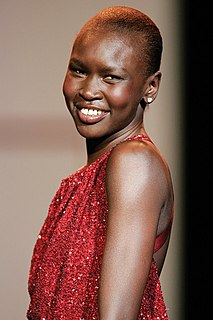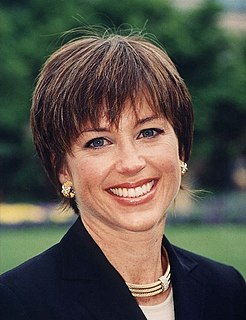A Quote by Karen Marie Moning
They had each other and there was a love between them that would withstand anything. Alina and I had always intuited, with no small wry pique, that, although our parents adored us and would do anything for us, they loved each other more. As far as I was concerned, that was the way it should be. Kids grow up, move on and find a love of their own. The empty nest shouldn't leave parents grieving. It should leave them ready and excited to get on with living their own adventure, which would, of course, include many visits to children and grandchildren.
Quote Topics
Adored
Adventure
Although
Always
Anything
As Far As
Between
Children
Children And Grandchildren
Concerned
Course
Each
Empty
Empty Nest
Excited
Far
Find
Get
Grandchildren
Grieving
Grow
Grow Up
Had
Include
Kids
Leave
Living
Love
Loved
Many
More
Move
Move On
Nest
Other
Our
Own
Parents
Pique
Ready
Should
Small
Them
Up
Us
Visits
Way
Which
Withstand
Would
Wry
Related Quotes
Waiting upon the Lord gives us a priceless opportunity to discover that there are many who wait upon us. Our children wait upon us to show patience, love, and understanding toward them. Our parents wait upon us to show gratitude and compassion. Our brothers and sisters wait upon us to be tolerant, merciful, and forgiving. Our spouses wait upon us to love them as the Savior has loved each one of us.
In my country, families are raised as though they are one. Although I am from the Dinka tribe, my parents didn't raise us as the Dinka tribe. They raised us as the Wek family, in the way they believed their children should grow up. So when you leave, the first thing you think is the ones you left behind. It's natural to help them in any way you can. I found a way to support myself rather than asking my Mum to give me money. I would work before school and send money back to pay for their rent and food.
If men lived like men indeed, their houses would be temples -- temples which we should hardly dare to injure, and in which it would make us holy to be permitted to live; and there must be a strange dissolution of natural affection, a strange unthankfulness for all that homes have given and parents taught, a strange consciousness that we have been unfaithful to our fathers honor, or that our own lives are not such as would make our dwellings sacred to our children, when each man would fain build to himself, and build for the little revolution of his own life only.
But the things is, you see, that two people can never actually become one no matter how close they are. And it would not be desirable even if it were possible. What would happen when one of them died? It would leave the other as a half a person, and that would be a dreadful thing. We must each be a whole person and therefore we each need some privacy to be alone with ourselves and our own feelings.
Love is at the root of all healthy discipline. The desire to be loved is a powerful motivation for children to behave in ways thatgive their parents pleasure rather than displeasure. it may even be our own long-ago fear of losing our parents' love that now sometimes makes us uneasy about setting and maintaining limits. We're afraid we'll lose the love of our children when we don't let them have their way.
Living on the street as a kid changed the way I looked at everything. It was a different time and while it had its dangers, it was nothing like it would be today. It was the Summer of Love and there was a real sense of community among us. We were hippies who looked out for each other instead of trying to rip each other off. We only had to watch out for the police who liked to roust us just on general principles, and the kids who came in from the suburbs to do a little hippie-bashing.
I would stay away from him and leave him to go his own road where there would be other women, countless other women, who would probably give him as much physical pleasure as he had had with me. I wouldn’t care, or at least I told myself that I wouldn’t care, because none of them would ever own him—own any larger piece of him than I now did.
Each one of us must in the end choose for himself how far he would like to leave our collective fate to the wayward vagaries of popular assemblies For myself it would be most irksome to be ruled by a bevy of Platonic Guardians, even if I knew how to choose them, which I assuredly do not I should miss the stimulus of living in a society where I have, at least theoretically, some part in the direction of public affairs.
A parent does not do everything for their kid. A parent that does everything for their kid produces a kid with no self-confidence. If our parents fixed everything for us and did not allow us to do anything on our own, or intervened every single time, we would all grow up to be completely dependent. The reason we grow up to be healthy adults is because our parents played this game of giving us responsibility, disciplining us when necessary, letting us try, letting us fail.
Love involves more than just feelings. It is also a way of behaving. When Sandy said, "My parents don't know how to love me," she was saying that they don't know how to behave in loving ways. If you were to ask Sandy's parents, or almost any other toxic parents, if they love their children, most of them would answer emphatically that they do. Yet, sadly, most of their children have always felt unloved. What toxic parents call "love" rarely translates into nourishing, comforting behavior.


































